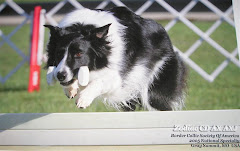.jpg) Some of these pictures of her shaking off just cracked me up.
Some of these pictures of her shaking off just cracked me up.
The Big Number 3
2 weeks ago
.jpg) Handsome boy playing with his ball-a smaller one than normal so it's a more attractive picture. Usually he's got the HUGE one hanging off his face.
Handsome boy playing with his ball-a smaller one than normal so it's a more attractive picture. Usually he's got the HUGE one hanging off his face..JPG)
.jpg) One from the other day when it was nice and dry and kind of warm.
One from the other day when it was nice and dry and kind of warm..jpg)
.jpg)
.jpg) Here is the new bridge they are building to eliminate traffic over the dam.
Here is the new bridge they are building to eliminate traffic over the dam..jpg)
.jpg) Here is the Excalibur at night-pretty cool.
Here is the Excalibur at night-pretty cool..jpg) Here a few views of the strip
Here a few views of the strip.jpg)
.jpg) This is where the TV show Pawn Stars is filmed. The show has increased the shop's popularity so much that you have to wait in line to get in. When we went during the day we didn't have time to wait in line so we came back later and it was closed. Only the pawn window is open 24 hours. But at least we got to peek in the doors and windows.
This is where the TV show Pawn Stars is filmed. The show has increased the shop's popularity so much that you have to wait in line to get in. When we went during the day we didn't have time to wait in line so we came back later and it was closed. Only the pawn window is open 24 hours. But at least we got to peek in the doors and windows..jpg)
.JPG)
.JPG)
.JPG) These are some more pictures from yesterday. I didn't take any more today but the weather was equally as wonderful and the dogs enjoyed lots of great pay time outside. And now they are tired!!!
These are some more pictures from yesterday. I didn't take any more today but the weather was equally as wonderful and the dogs enjoyed lots of great pay time outside. And now they are tired!!!.jpg) It was a great day here-warm and sunny with no mud! A perfect day take pictures and then play with Photoshop. But it wasn't all playing. I got the last of the closets cleaned out and worked all the dogs. Everyone did great again! I won't bore you with all the training details but here are some pictures from today to enjoy!
It was a great day here-warm and sunny with no mud! A perfect day take pictures and then play with Photoshop. But it wasn't all playing. I got the last of the closets cleaned out and worked all the dogs. Everyone did great again! I won't bore you with all the training details but here are some pictures from today to enjoy!.JPG)
.jpg)



.jpg)


Just like that
you're six years old
and you take a nap
and you wake up
and you're twenty-five
and your high school sweetheart
becomes your wife...
Don't blink...
